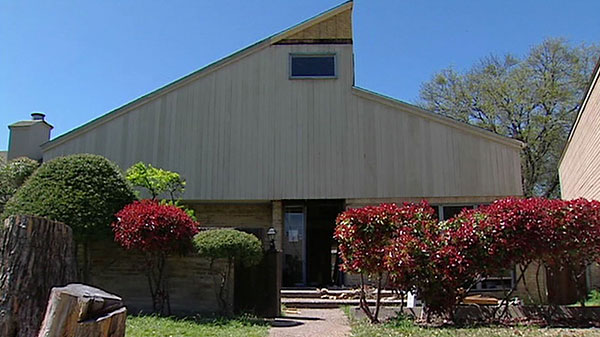NEWS 8 INVESTIGATES
DALLAS Profit and charity are colliding in two Dallas neighborhoods.
Last month, residents in the city's Forest Hills section told News 8 about concerns over a for-profit transitional home for recovering alcohol and drug abusers that had located there temporarily.
That prompted complaints from another neighborhood where the same company has more than one for-profit house transitional home.
The owner of the homes, clinical psychologist Don Fielding, says he's providing a public service by giving men with substance abuse problems a path to readjust to society.
What are you going to do with all those people? How are you gonna treat those people? Fielding asked.
There are scores of transitional homes around Dallas. Most are non-profit charitable organizations that charge clients a few hundred dollars a month.
Fielding's business, Life Force, is a for-profit entity. He advertises for clients nationwide on a Web site, where fees are outlined at $2,250 a month.
Neighbors surrounding one Life Force town house near Hillcrest High School, say they've been suffering from the transitional home for a decade.
I've had multiple break-ins into my vehicle parked in front of my house, said Harold Spiegel. Both windows in my pickup truck were broken; one side window broken one time; the skylight broken one time.
We hear screaming next door, added Nancy Wallace. We hear loud music next door. We all feel unsafe.
Many of the residents of the town house are single women. Murilla Smith, who lives in a home nearby, described an incident where a Life Force client walked into her house and asked her for a job. She was astounded and fearful.
Another woman told of an incident where her elderly mother was approached by a Life Force client and hugged while she was walking her dog.
The neighbors call police about disturbances. The police come, but incidents recur, according to the neighbors.
One resident estimates she's called police 15 times.
Fielding said he knows about the complaints, and has met with the residents to solve the problems.
The neighbors who have been wrestling with Life Force for ten years say they are fed up. They question whether Fielding's connection at City Hall is the reason the problems persist. His sister is City Council member Linda Koop.
Does he get special treatment? Not at all, Fielding said.
The Life Force owner says his homes are highly structured environments where one, and sometimes two supervisors are always on the premises.
The neighbors don't believe that, because they say they find liquor bottles outside their doors and vodka bottles in their trash cans.
Fielding offers a philosophical response: If, in fact, that did happen I'm not going to deny that it couldn't they [Life Force clients] wouldn't be the first alcoholic to try and sneak a drink.
Neighbors ask why they should be saddled with these problems so Fielding can make money.
On the morning of February 20, there were two fires at a Life Force town house. Clients standing on the lawn watched the flames go through the roof.
Ordinances do not permit more than eight residents at the unit, but the neighbors said a Life Force supervisor has told them as many as ten have lived there.
Fielding denies this assertion.
The damaged town house is now being rebuilt, but it is not the only residence Fielding uses for transitional clients. Dallas property records indicate he owns four properties worth more than $1.2 million.
Is there a curfew in these houses? asked neighbor Bonnie West. Is there any kind of licensing, certification, zoning?
The answer to that is, no. Because Life Force is for-profit and does not take public money, the state does not oversee its operations. Only Fielding and his clients know exactly what goes on inside the homes.
The only one watching the facilities appears to be the Dallas zoning department. City codes allow as many as five people with different surnames to live in the same home, as long as they share a kitchen.
That number rises to eight because of a provision in the Americans With Disabilities Act, the ADA. It permits a population of eight under the same roof, and the ADA is applicable because substance abuse is considered a disability.
The neighbors want someone to do something. They want to know how Life Force facilities can comply with ADA if they are not equipped with other modifications such as wheelchair ramps.
Fielding said he realizes neighbors are upset. He said he has tried to find a proper house to relocate his clients for ten years; he just hasn't found it. He noted that he did obtain a home in East Dallas in 2005, but decided to sell it.
I'm trying to be in tune with what the neighborhood wants, Fielding said, and I have compassion for those people.
Neighbor Bonnie West is not convinced.
If he told me the sun was shining, I'd go to the window and check.
E-mail bharris@wfaa.com


